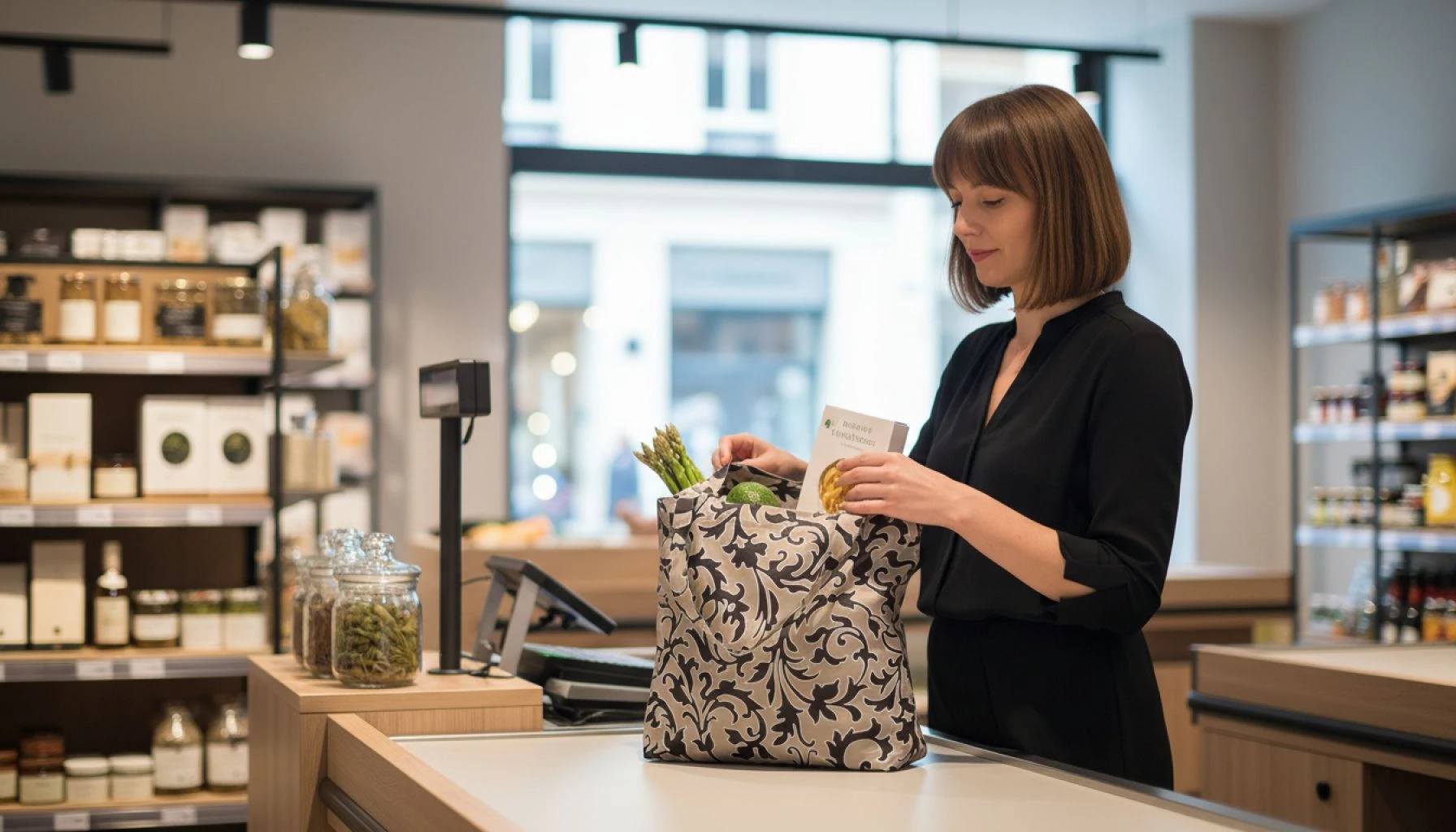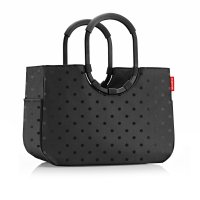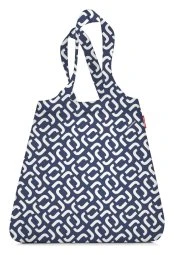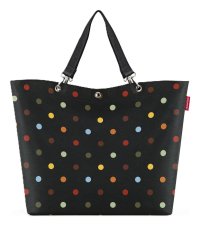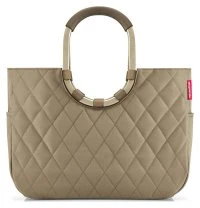Every day, we make dozens of small decisions. One of them happens the moment we get to the checkout and hear the question, "Would you like a bag?" for many of us, it's an automatic process, but this is where we can make a big difference. The era of single-use plastic bags is slowly but surely coming to an end, and the hero of the everyday, the eco-friendly bag, is taking the stage. It's not just an accessory; it's a statement. Let's take a look at why it's a great choice, what types are available, and how to choose one that will serve you for years.
Contents:
- The Eco-Friendly Bag: More Than Just a Trend, It's a Necessity
- Why Say Goodbye to the Plastic Bag? Sad Numbers from Nature
- Is a Paper Bag the Saviour? Not Quite...
- Which Eco-Friendly Bag is Right for You?
- 5 Main Advantages of Choosing an Eco-Friendly Bag
- How to Care for Your Eco-Bag to Keep it Lasting as Long as Possible
- Eco-Friendly Shopping Bags – FAQ
- Your Journey to More Sustainable Shopping Starts Here
The Eco-Friendly Bag: More Than Just a Trend, It's a Necessity
What exactly do we mean by an eco-friendly bag? It's not just any ordinary bag. It's a symbol of a change in mindset. It's any bag designed for repeated use to minimise its environmental impact. While plastic bags often end up in the bin after a single shopping trip (or worse, in nature), an eco-bag is with us for months, if not years. It's made from materials that are either natural (like cotton) or recycled, and most importantly, they are durable and strong.
Why Say Goodbye to the Plastic Bag? Sad Numbers from Nature
Plastic bags might be convenient for a few minutes, but their legacy is almost eternal. The average plastic bag takes hundreds of years to decompose in nature.
- An estimated up to 5 trillion plastic bags are consumed worldwide each year.
- A huge amount of plastic waste ends up in the oceans, threatening marine life.
- Plastic production is energy-intensive and consumes non-renewable resources.
Reducing the consumption of these single-use products is the key to a cleaner planet. Replacing them with a reusable alternative is the least we can do.
Is a Paper Bag the Saviour? Not Quite...
A paper bag decomposes faster than plastic, but its production typically consumes more energy and water. Therefore, with bags, it's not a case of "paper good / plastic bad," but about the number of reuses and local waste management conditions.
Problems with paper bags:
- Production: The production of paper bags consumes more energy and water than the production of plastic ones.
- Chemicals: Chemicals are often used in the manufacturing and bleaching of paper.
- Durability: A few drops of rain or a heavier load of shopping, and the paper bag tears. It usually only lasts for one, maybe two, uses before becoming unusable.
Although paper bags are better than plastic ones, they are still not the ideal solution for regular shopping. The ideal solution is a durable and reusable eco-bag.
Which Eco-Friendly Bag is Right for You?
The market for eco-friendly bags is vast, and choosing one can be tricky. Focus on two main parameters: material and type.
A Guide to Materials: From Cotton to Recycled Fabrics
The material determines not only the look but, crucially, the durability and maintenance.
- Cotton: A classic that won't disappoint. A cotton shopping bag is strong, breathable, and easy to wash. You can choose classic or even more eco-friendly organic cotton. Cotton bags are ideal for everyday shopping.
- Polyester / Nylon: These synthetic materials are extremely strong, lightweight, and often water-resistant. They are the basis for foldable shopping bags that you can easily tuck into your handbag.
- RPET (Recycled Polyester): The star among sustainable materials. It is made by melting down old PET bottles. By buying such a bag, you give plastic waste a second life. They are just as durable as classic polyester.
- Jute or Linen: Natural materials with a rustic look that are very strong and suitable for heavier loads.
Did you know that... a cotton bag isn't always the greenest choice? Cotton cultivation is extremely water-intensive. To ecologically outperform a regular plastic bag, you would need to use it more than about 130 times (for organic cotton, it's up to about 300 times). The real solution, therefore, is not to hoard canvas bags, but to have a few durable pieces and use them long-term. This is also why recycled PET is proving to be a very eco-friendly alternative, giving waste a new purpose, saving resources, and having a lower environmental impact in the long run.
Types of Bags for Every Occasion
How will you use the bag most often?
- Foldable shopping bags: A small package that fits into any handbag, backpack, or pocket. They are ideal for unexpected shopping trips. Thanks to them, you'll never have to buy a plastic bag at the checkout again.
- Sturdy eco-friendly shopping bags: A bag with a solid base and robust handles that holds its shape perfectly. It's perfect for a big weekly shop. It is often washable.
- Shopping bags on wheels: For those who carry really heavy loads. It's a comfortable solution that saves your back. They are no longer just "granny bags"; modern designs are truly stylish.
- String bags: A retro classic that is back in fashion. It's incredibly compact and flexible at the same time – it holds more than it seems at first glance.
Tip: Would you like something a bit more stylish and multifunctional? Choose from, for example, women's shoulder bags. You can carry such bags to work or dinner with a clear conscience.
5 Main Advantages of Choosing an Eco-Friendly Bag
Still hesitating whether to get an eco-bag? Here are five reasons why they are a great choice for everyone:
- You save the environment: This is the main point. One eco-friendly bag can replace hundreds to thousands of single-use bags over its lifetime. By using one, you actively contribute to reducing the amount of plastic waste.
- They are kind to your wallet: The initial investment quickly pays for itself. You'll stop spending money on paid plastic or paper bags at the checkout.
- They are incomparably more durable: Quality fabric bags are strong and resilient. They can carry a heavy load of shopping without you having to worry about the handle tearing or the bottom breaking.
- They are stylish: Gone are the days of boring canvas bags. Today, eco-friendly bags are produced in countless designs, colours, and cuts. They become a fully-fledged fashion accessory.
- They are versatile: It's not just a shopping bag. You can take it to the beach, the gym, a picnic, or for carrying things to work.
How to Care for Your Eco-Bag to Keep it Lasting as Long as Possible
To ensure your bag serves you as well as possible, it's good to give it a little care.
- Washing: Most cotton bags can be machine washed (follow the label). Bags made of polyester or RPET just need to be wiped with a damp cloth.
- Storage: Always keep foldable bags folded in your handbag or car. Store others in a dry place.
- Don't forget it: The biggest sin? Leaving your great eco-bag at home. Make a habit of taking it with you automatically, just like your keys or phone.
- End of life: Try to upcycle cotton or throw it in a textile recycling bin; use synthetic bags for other purposes, like a bag for sorted waste, etc.
Eco-Friendly Shopping Bags – FAQ
- What are the benefits of eco-friendly shopping bags?
Eco-friendly shopping bags are environmentally friendly and a great alternative to single-use plastic bags. They are made from sustainable materials and can be used repeatedly, which reduces waste. - What types of shopping bags are there?
There are many types of shopping bags, including foldable bags that are practical for everyday use. You can also find bags of various sizes and designs to suit your needs. - Are foldable bags really practical?
Yes, foldable bags are very practical because you can easily pack them down to a small size and take them with you anywhere. This makes shopping easier and minimises the need for plastic bags. - What materials are used to make eco-friendly bags?
Eco-friendly bags are made from various materials, such as organic cotton, jute, or recycled plastic fibres. These materials are environmentally friendly and ensure the long life of the bags. - Why should I use eco-friendly bags instead of plastic ones?
By using eco-friendly bags instead of plastic ones, you contribute to protecting the environment. Plastic bags pose a major environmental burden, whereas eco-friendly bags are biodegradable and reusable, which helps to reduce waste. - What are the trends in shopping bags?
Trends in shopping bags include the growing popularity of eco-friendly and foldable bags. More and more people are becoming aware of the importance of being environmentally friendly and are choosing bags that are not only functional but also ecological.
Your Journey to More Sustainable Shopping Starts Here
Change doesn't have to be radical right away. It starts with small steps, and an eco-friendly bag is one of the easiest. It's a practical, more sustainable, and stylish way to say "no" to unnecessary plastic. Whether you choose a designer cotton bag, a practical foldable one, or a sturdy heavy-duty bag, you're doing the right thing. At Bagalio, we believe that even a shopping bag can be of high quality and bring joy. Take that step today – next time at the checkout, the decision will be easy.

